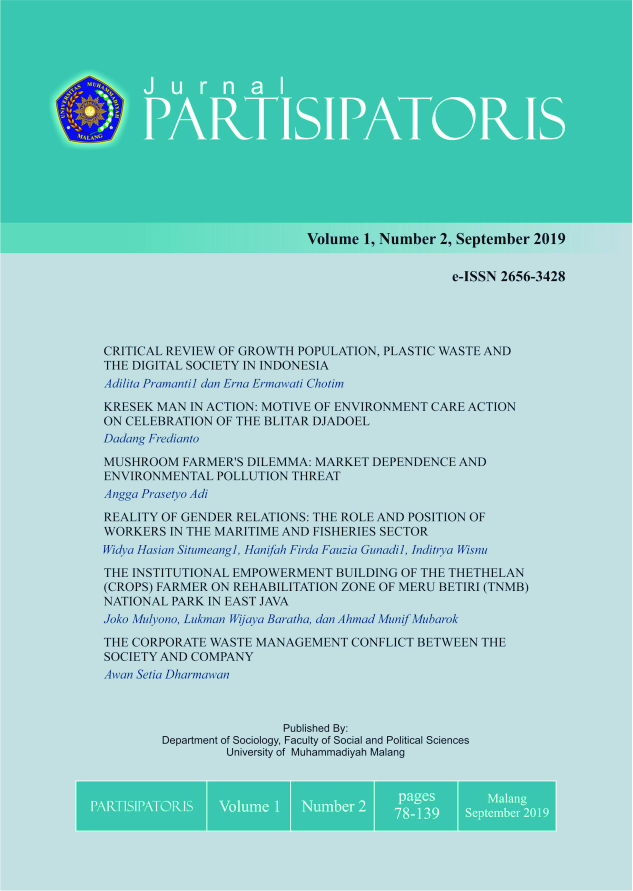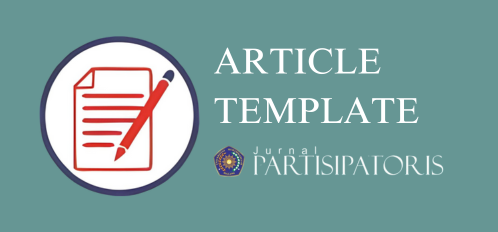CRITICAL REVIEW OF GROWTH POPULATION, PLASTIC WASTE AND THE DIGITAL SOCIETY IN INDONESIA
DOI:
https://doi.org/10.22219/jp.v1i2.8569Abstract
Population growth has the potentialincreasing the generation of physical plastic waste which gives a new color to the object of environmental movement as a new social movement in the digital era where people's knowledge about waste is obtained through information on social media in a wide and varied manner. Every human being and group in society must be related to garbage. Especially when population growth is one of the factors that later becomes a critical problem. Increased Trends in the global population in the 21st century reveal an increase in rural migration to cities in the world and rapid population growth in urban centers and urban village.The emergence of business groups in various levels on social media that mainstreamed and utilized plastic waste actually triggered a new style of consumerism. With the rapid growth of consumerism the population has only switched from replacing the use of plastic products and using products that are more environmentally friendly. However, if population growth is high, easy access to consumption needs, internet access and media are not limited to productive age groups who have many necessities of life and the need for social prestige in cyberspace or everyday, new style consumerism will only find new places later. strengthen global capitalism and make the term "modern society" who care about the dangers of plastic waste to develop. The idea of selling ecotourism tickets by exchanging plastic bottles, garbage banks, green and other movements that appear every day in the media then makes pseudo-accumulated awareness for media users in BPS data (2015) Mobile phone use is in productive age so access to consumerism is a new style in the issue of plastic waste then has its own place in the development of the population as part of the capital of global capitalism. The author wants to focus on further research in order to find renewal and is expected to be able to provide input to the government in order to overcome population growth and increase plastic waste in Indonesia in this digital era.
Downloads
References
From UMM
Downloads
Published
How to Cite
Issue
Section
License
Authors who publish with Jurnal Partisipatoris agree to the following terms:
- For all articles published in the Jurnal partisipatoris, copyright is retained by the authors. Authors give permission to the publisher to announce the work with conditions. When the manuscript is accepted for publication, the authors agree to the automatic transfer of non-exclusive publishing rights to the publisher.
- Authors retain copyright and grant the journal right of first publication with the work simultaneously licensed under a Creative Commons Attribution-ShareAlike 4.0 International License that allows others to share the work with an acknowledgment of the work's authorship and initial publication in this journal.
- Authors are able to enter into separate, additional contractual arrangements for the non-exclusive distribution of the journal's published version of the work (e.g., post it to an institutional repository or publish it in a book), with an acknowledgment of its initial publication in this journal.
- Authors are permitted and encouraged to post their work online (e.g., in institutional repositories or on their website) prior to and during the submission process, as it can lead to productive exchanges, as well as earlier and greater citation of published work (See The Effect of Open Access).












